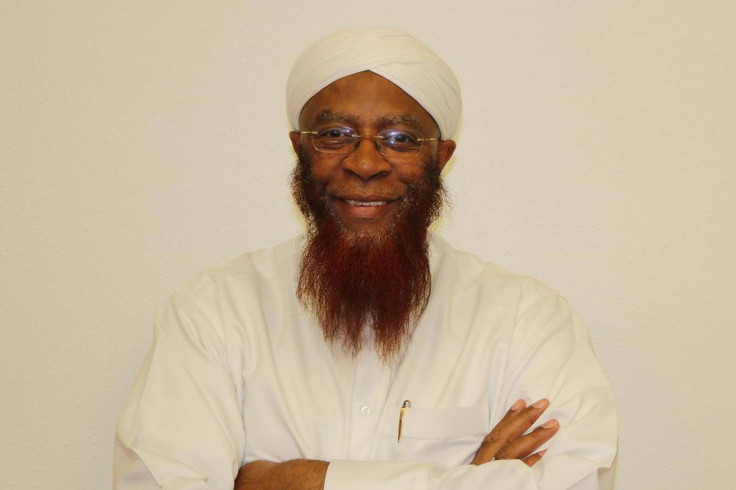'Sharia Patrols in Texas?': Fury as US Imam Warns Muslim-Owned Stores to Stop Selling Pork and Alcohol
Houston imam faces criticism after warning Muslim-owned shops to stop selling pork, alcohol, and lottery tickets, fuelling fears of 'Sharia enforcement' in US.

A viral video showing Houston imam F Qasim ibn Ali Khan confronting a shop employee over sales of pork, alcohol and lottery tickets has provoked heated debate on social media and in political circles.
Khan, of Masjid At-Tawhid, urged Muslim-owned businesses to remove 'haram' goods or face boycotts and protests, with critics warning his campaign resembles so-called 'Sharia patrols'.
The Viral Video of Khan 'Enforcing' Muslim Faith
The footage, shared on Khan's TikTok account with around 17,000 followers, shows him warning a shop worker that selling forbidden items violates Islamic law. 'The people who call themselves Muslims should not be selling haram in their stores,' he says in the clip.
Khan leads a Nation of Islam-affiliated mosque, alleging that a nationwide protest movement is set to take place.
'We're kicking off a national protest and demonstration campaign against all Muslim businesses that have haram in their stores,' says Khan in the recording.
Accusations Of 'Sharia Patrols'
The video drew swift criticism online, with comparisons to controversial 'Sharia patrol' incidents in parts of Europe where activists sought to impose Islamic codes in public spaces.
Critics argued that the campaign undermines American values of individual choice and freedom of commerce.
Amy Mekelburg, founder of the RAIR Foundation, a right-wing activist outlet, said that 'this is how Sharia zones take root. While the outlet has been accused of promoting anti-Muslim conspiracy theories, Khan fueled the fire by doubling down.
🚨 ALERT TEXAS – SHARIA PATROLS! 🚨
— Amy Mek (@AmyMek) August 23, 2025
Last week, I reported that Masjid At-Tawhid in Houston, a tax-exempt Nation of Islam mosque, was proudly flying the Palestinian flag. Their Imam, F. Qasim ibn Ali Khan, even boasted on film about it.
That dyed red-orange beard isn’t just a… pic.twitter.com/Wfexz7q2ME
Responses To Khan's Video
Critics have deemed Khan's confrontation with the merchants as the emergence of 'Sharia patrols' in the US. It reminded netizens, particularly in Europe, of controversial tactics where religious hardliners imposed Islamic norms in public spaces.
The methods involved often include intimidation, threats, or violence. While Khan himself wasn't notably aggressive, the symbolism was evident enough to spark concerns.
The video shows Khan addressing his goals, which are rooted in practising Islamic teachings. Still, he does insist that his methods are within the law, believing the initiative is a religious outreach or da'wah.
According to critics, Khan's appearance and tactics mirror those of militant figures abroad who enforce religious practices. The footage has gone as far as starting debates in Texas political circles over whether religious bodies are building 'parallel societies' in the US.
Others have also addressed the imam's attempt to enforce religious conduct through violating American values and legal norms. A couple of comments stood out about how Khan is affecting the perception of Muslim faith in the US.
'With these posts in public, this guy will draw negative attention to Muslims here. I 100% understand what he's doing but this is Texas in America, where everyone is free to do what they want,' posted one user online.
'In Islam, it is not appropriate for a sheikh or anyone to threaten a store owner over alcohol sales, especially if the store is legal and the action may cause harm,' added another user.
There are, however, some who agree with Khan's campaign. They argue that he's only expressing his religious views and pushing fellow Muslims to adhere to their faith.
About Imam F Qasim ibn Ali Khan
Khan is associated with Masjid At-Tawhid, described as linked to the Nation of Islam—an organisation whose views are regarded as controversial within the wider Muslim community.
His distinctive appearance, including a red-orange dyed beard, has made him instantly recognisable in public.
While no laws have been broken, his high-profile campaign has amplified scrutiny over how religious leaders balance faith-based activism with America's secular legal framework.
Legal And Political Implications
Khan insists his campaign is lawful and framed as protest, which is protected under the First Amendment of the US Constitution.
Nonetheless, the footage has sparked debate in Texas political circles about whether such campaigns risk creating 'parallel societies'.
For now, the protests appear limited to Houston, though Khan has promised to expand nationwide.
© Copyright IBTimes 2025. All rights reserved.





















